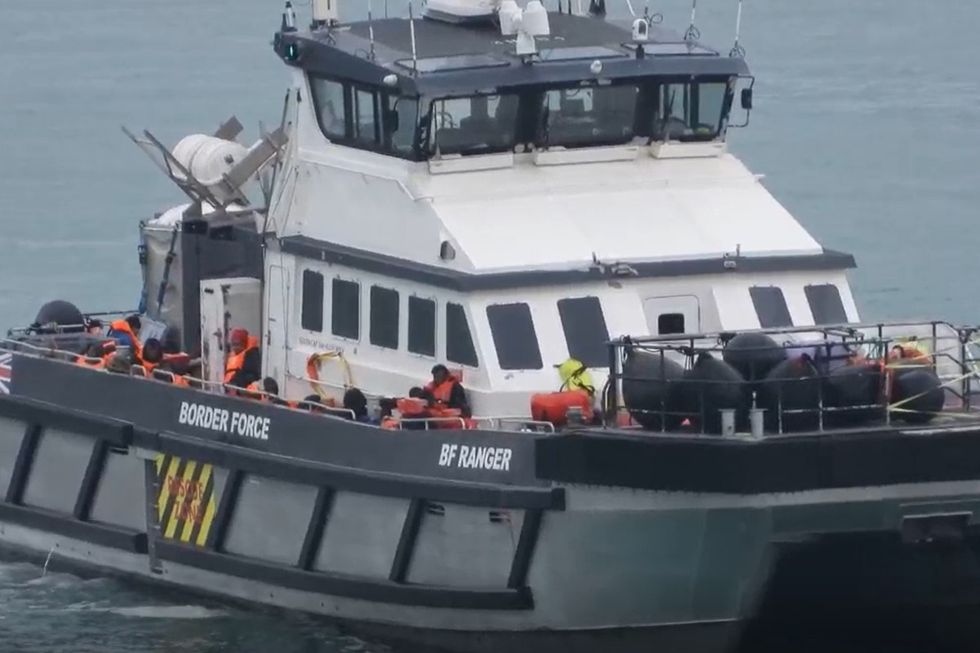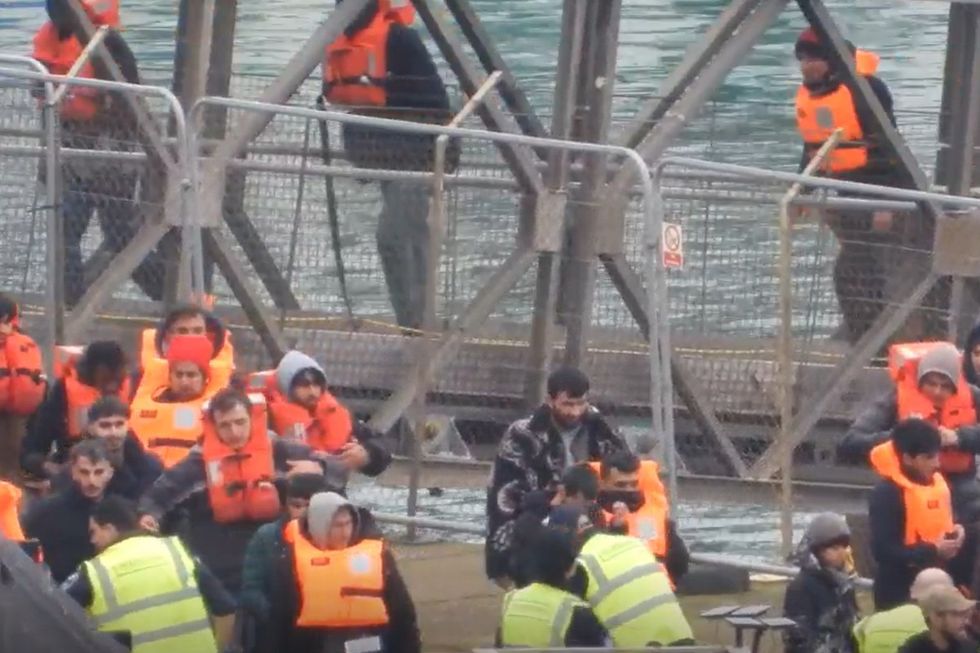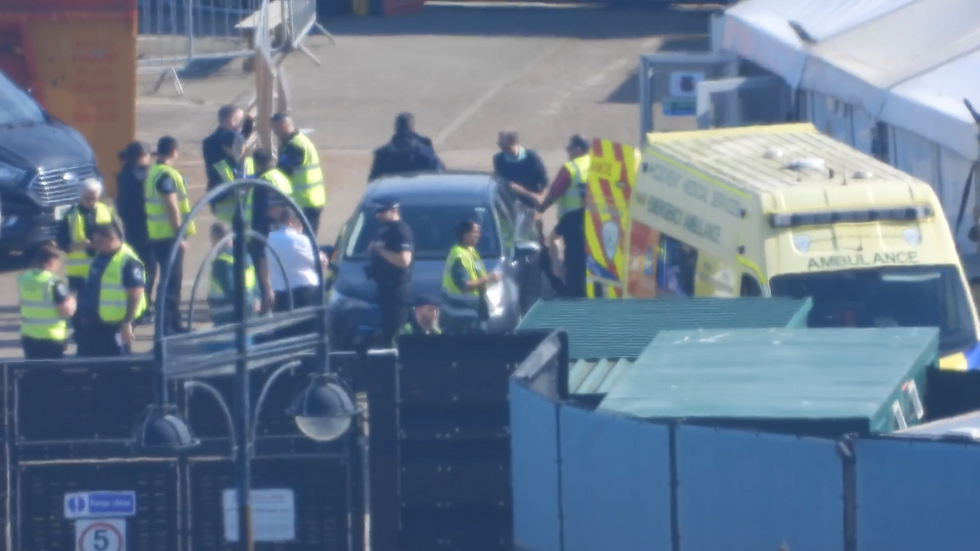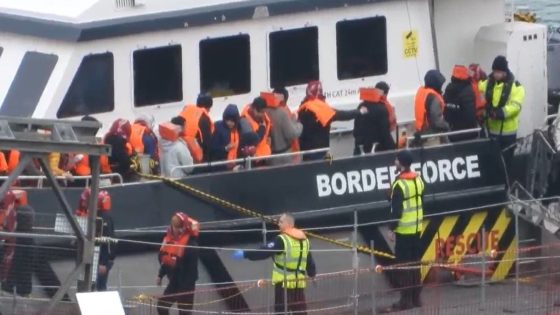French police are facing increasing levels of “violence and disruption” on their northern beaches, as almost 5,000 small boat migrants have now crossed the English Channel so far this year, GB News can reveal.
Border Force personnel and their French counterparts have spent a busy Easter weekend so far, dealing with multiple small boat launches.
Almost 300 Channel migrants were taken to Dover by Border Force vessels.
The Home Office said their French counterparts were facing growing dangers as they attempt to intervene and stop small boat launches.
A spokesperson said: “We continue to work closely with French police who are facing increasing violence and disruption on their beaches as they work tirelessly to prevent these dangerous, illegal and unnecessary journeys.”
Some French officers and migrants have been injured in recent clashes, as police intervened in attempts to puncture the dinghies.
Just over a week ago, police reported serious clashes on a beach near Boulogne, as they attempted to prevent large groups of migrants from launching four boats.
A group of up to 350 mainly Sudanese, Vietnamese and Kurdish migrants began throwing sticks, stones and other missiles at the officers.
The group also used the petrol they were carrying for their journey to start fires on the beach, to prevent police from reaching the boats.
Authorities reported injuries to both police and migrants.
The increased violence is not just directed at the police.
LATEST DEVELOPMENTS:

The latest figures by GB News suggest almost 5,000 migrants have crossed channel this year
GB News
Groups of migrants have clashed with each other regularly as some attempt to climb aboard the boats without paying.
Nine days ago, a migrant arrived in Dover with stab injuries after a confrontation with criminal people smugglers on a French beach as he attempted to jump on board a small boat.
Despite the efforts of French authorities, an increasing number of migrant boats are managing to make it into the sea.
On Saturday, another six migrant dinghies successfully crossed into UK waters.
Around 10.30am this morning, the Border Force catamaran Defender arrived at Dover harbour with those taken off two small boats.
A GB News team on the ground counted 90 people taken off the Defender and escorted to the nearby Border Force migrant processing centre.

On Saturday, another six migrant dinghies successfully crossed into UK waters
GB News
Weather conditions in the English Channel have improved since storms made the journey impassable for dinghies over recent days.
The last small boat activity was last Tuesday, when 338 migrants crossed into UK waters on seven dinghies.
Just after 11am today, the Border Force vessel Ranger arrived in Dover with 118 people on board, who had been intercepted and taken off two small boats as they entered UK waters.
Just over an hour later, the Defender arrived back in Dover with a smaller group of 20 migrants, taken off one small boat.
By early afternoon, a third Border Force vessel Hurricane docked in Dover with another boatload.
GB News counted 58 people who were taken off the Hurricane.

Ambulance at Dover when the stabbed migrant arrived
GB News
Today’s arrivals take the total number of migrants crossing the Channel in small boats this year to 4,930.
That is significantly higher than the 3,793 Channel migrants who had made the journey at the end of March last year.
The figures represent a 25 per cent increase in the number of small boat migrants so far this year than in 2023.
The whole of last year recorded a 36 per cent reduction on the record year in 2022 when almost 46,000 illegal migrants crossed the Channel.
The surge in arrivals in the first three months of this year will concern Border Force officials, who predicted 2024 numbers could easily surpass those of 2023.
A Home Office spokesperson said: “The unacceptable number of people who continue to cross the English Channel demonstrates exactly why we must get flights to Rwanda off the ground as soon as possible.
“We remain committed to building on the successes that saw arrivals drop by more than a third last year, including tougher legislation agreements with international partners, in order to save lives and stop the boats.”
Source Agencies




